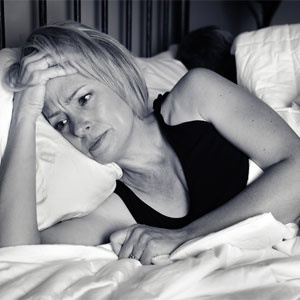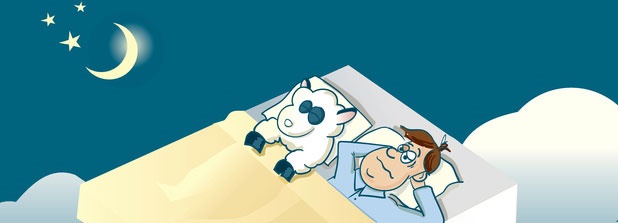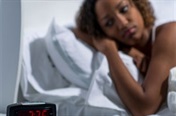
Many people who suffer from sleep disorders have underlying medical or mental health problems. And you don’t have to lie awake all night, every night, for a lack of sleep to take its toll on your general sense of well-being and energy levels.
Sleeplessness can affect your work performance, your personal relationships, your concentration levels, and your general health. It can also make you feel irritable.
Not sleeping well can have neurological effects, such as slurred speech or shakiness. It can make your body temperature decrease slightly, have an effect on the secretion of hormones, and it can affect the activity of the thyroid gland. In children, a sleep disorder can affect growth.
Everyone can learn to sleep better, but it may take some commitment from you, tracking your specific symptoms and sleeping patterns, in order to eliminate the possible causes. It could be as simple as cutting down on late-night snacks, chocolate, coffee or alcohol, trying to get to sleep at the same time every night, or buying a new mattress.
Your room may be too cold, too hot, too light or too noisy. Sometimes there are easy solutions to disrupted sleep.
If the problem isn’t that simple, and often it isn’t, you may have to call in the help of sleep specialists, who can monitor your sleep and recommend a course of action. There are now sleep clinics in most big cities, where this can be done. Treatment may entail lifestyle changes, or taking medication.
But with modern medicine, you no longer have to live with a sleeping disorder and let it disrupt your life. Sometimes medication can be taken on a short-term basis to sort out your sleeping pattern. Some people may need long-term treatment.
Symptoms of sleep disorders
Sleep is a mysterious thing that scientists still don’t fully understand. Everyone has to sleep, but people have very different needs when it comes to their daily rest.
Sleep problems are often the result of poor lifestyle or sleeping habits, sleep disorders (such as insomnia and sleep apnoea), or other medical conditions.
Some people need 8 hours of sleep; others much less. Some people take a nap during the day and others don't because it keeps them awake at night. Some people sleep deeply, while others hover on the brink of consciousness.
There are three categories of sleep disorders:
- Lack of sleep (e.g. insomnia)
- Disturbed sleep (e.g. sleep apnoea, restless leg syndrome)
- Excessive sleep (e.g. narcolepsy)
Symptoms of a few common sleep disorders include the following:
Daytime exhaustion
This can be a symptom of insomnia, which is an inability to fall asleep.Insomniacs often worry about not getting enough sleep, which increases anxiety levels and which can worsen the problem.
Diet, emotional problems, many medical conditions, and several medications can cause insomnia. A lack of sleep can lead to poor functioning, which is often reflected in questionable judgement, poor coordination, bad memory and irritability.
Depression and anxiety can also lead to early-morning waking.
Daytime exhaustion can also indicate sleep apnoea, which refers to interrupted breathing during sleep. It’s often accompanied by loud snoring, and what sounds like gasping. The problem with sleep apnoea is that it can interrupt the sleep cycle up to 100 times per night, so it’s no wonder that it leads to daytime fatigue.
The same goes for restless leg syndrome, which can also wake you up to three times per minute at night.
Waking up unrefreshed
In a normal sleep cycle, the body alternates between deep and light sleep. If you’re sleeping deeply, you experience rapid eye movement – often a sign that you’re dreaming.
If something is stopping you from entering the deep sleep cycle (such as REM sleep disorder, which can cause you to walk and talk in your sleep), you’ll feel unrefreshed in the morning. If you’ve slept for 8 hours, but are still tired, you have a problem other than insomnia.
Snoring
Occasional snoring isn’t a problem, but if you snore every night and it disrupts your own sleep and that of your partner, it could be a problem. Heavy snoring is the result of airflow through the mouth and the nose being physically obstructed.
A sinus infection or a deviation in the nasal wall can cause this. But when throat and tongue muscles relax too much, they collapse and fall back onto the airway. This leads to the interrupted breathing and gasping, which is so characteristic of sleep apnoea.
Day-time sleeping
Everyone has the occasional nap, but if you’re falling asleep at work or behind the wheel for no reason, it needs to be investigated. This is a sign that you’re unrested or that you could have narcolepsy, which could point to neurological problems. If you have no control over when you fall asleep (sometimes for as little as a minute or sometimes more than half an hour at a time), you definitely need to see your doctor.
Jerking legs
People are generally unaware of jerking their legs when they're asleep. Restless leg syndrome is a genetic disorder and can cause sufferers to constantly wake up during the night.
Read more:
Risk factors of sleep disorders
Reviewed by Dr Irshaad Ebrahim, specialist neuropsychiatrist in sleep disorders at The London Sleep Centre and The Constantia Sleep Centre. FRCPsych. April 2018.




 Publications
Publications
 Partners
Partners













